Related Research Articles

Reginald Oliver Denny is a former construction truck driver who was pulled from his truck and severely beaten during the 1992 Los Angeles riots. His attackers, a group of black men who came to be known as the "L.A. Four", targeted Denny because he was white. The attack was captured on video by a news helicopter and broadcast live on U.S. national television.

The Western Australia Police Force, colloquially WAPOL, provides police services throughout the state of Western Australia, an area of 2.5 million square kilometres, the world's largest non-federated area of jurisdiction, with a population of 2.66 million, of which 2.11 million reside in the Perth Metropolitan Region.
"Driving while black" (DWB) is a sardonic description of racial profiling of African-American motor vehicle drivers. It implies that a motorist may be stopped by a police officer largely because of racial bias rather than any apparent violation of traffic law. It is a word play of "driving while intoxicated."
The Kapunda Road Royal Commission was a royal commission created by the Government of South Australia in 2005 to inquire into the circumstances surrounding the hit and run death of Ian Humphrey and the circumstances around the trial and conviction of Eugene McGee. The Royal Commissioner was Greg James QC. The first hearing of the commission was on 12 May 2005 and the report was delivered on 15 July 2005.
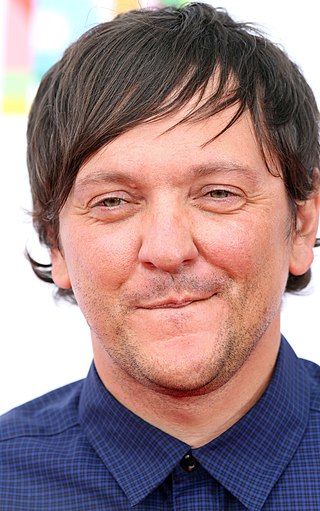
Christopher Daniel Lilley is an Australian comedian, actor, writer, musician, director, and producer. He is known for his creation and portrayal of several fictional characters in the mockumentary television series We Can Be Heroes: Finding The Australian of the Year (2005), Summer Heights High (2007), Angry Boys (2011), Ja'mie: Private School Girl (2013), Jonah from Tonga (2014), and the web series Lunatics (2019). He is a two-time winner of the Logie Award for Most Popular Actor.

Aboriginal deaths in custody is a political and social issue in Australia. It rose in prominence in the early 1980s, with Aboriginal activists campaigning following the death of 16-year-old John Peter Pat in 1983. Subsequent deaths in custody, considered suspicious by families of the deceased, culminated in the 1987 Royal Commission into Aboriginal Deaths in Custody (RCIADIC).
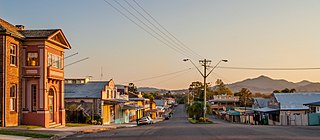
The Bowraville murders is the name given to three deaths that occurred over five months from September 1990 to February 1991 in Bowraville, New South Wales, Australia. All three victims were Aboriginal, and all disappeared after parties in Bowraville's Aboriginal community, in an area known as The Mission. A local labourer, who was regarded by police as the prime suspect, was charged with two of the murders but was acquitted following trials in 1994 and 2006. On 13 September 2018, the New South Wales Court of Criminal Appeal decided that the man could not be retried for the murders. On 22 March 2019, the High Court of Australia refused an application by the Attorney General of New South Wales to bring an appeal against that decision.
Indigenous Australians are both convicted of crimes and imprisoned at a disproportionately higher rate in Australia, as well as being over-represented as victims of crime. As of September 2019, Aboriginal and Torres Strait Islander prisoners represented 28% of the total adult prisoner population, while accounting for 2% of the general adult population. Various explanations have been given for this over-representation, both historical and more recent. Federal and state governments and Indigenous groups have responded with various analyses, programs and measures.

"Squashed Nigga" is a song performed by fictional character, S.mouse, of the Australian television series Angry Boys. It was released for digital download on 21 July 2011.
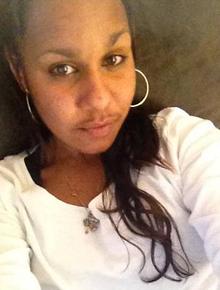
Julieka Ivanna Dhu was a 22-year-old Aboriginal Australian woman who died in police custody in South Hedland, Western Australia, in 2014. On 2 August that year, police responded to a report that Dhu's partner had violated an apprehended violence order. Upon arriving at their address, the officers arrested both Dhu and her partner after realising there was also an outstanding arrest warrant for unpaid fines against Dhu. She was detained in police custody in South Hedland and was ordered to serve four days in custody in default of her debt.

On 3 January 2007, a National Express Coaches Neoplan Skyliner N122/3L coach was operating on route 592 and was heading towards Aberdeen. It left Victoria Coach Station at 22:30 (GMT), carrying 65 passengers, and was due to arrive at Aberdeen Coach Park at 10:30 (GMT) on 4 January 2007. The coach was due to call en route at Heathrow Airport, Carlisle, Hamilton, Glasgow and Dundee.
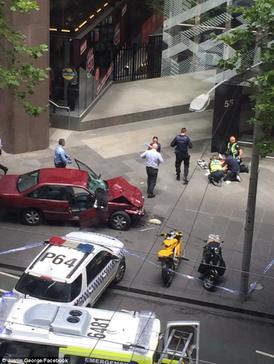
On 20 January 2017, around 1:30 pm AEDT on a busy Friday, a car was deliberately driven into pedestrians along Bourke Street in the Melbourne central business district, Victoria, Australia. Six people were killed and twenty-seven were seriously injured. The driver of the vehicle, James "Dimitrious" Gargasoulas, who was in a drug-induced psychosis, was subsequently found guilty of six counts of murder and was sentenced to life in prison with a non-parole period of 46 years.

On October 31, 2017, Sayfullo Habibullaevic Saipov drove a rented pickup truck into cyclists and runners for about one mile of the Hudson River Park's bike path alongside West Street from Houston Street south to Chambers Street in Lower Manhattan, New York City. The vehicle-ramming attack killed eight people, six of whom were foreign tourists, and injured eleven others.

On 21 December 2017, at 4:41 pm AEDT, a driver rammed pedestrians with his car at the corner of Flinders Street and Elizabeth Street in Melbourne, Victoria, Australia, killing one person and injuring seventeen others, including himself. The sole fatality, an elderly man, died eight days after the attack.

A Custody Notification Service (CNS), sometimes referred to as a Custody Notification Scheme, is a 24-hour legal advice and support telephone hotline for any Indigenous Australian person brought into custody, connecting them with lawyers from the Aboriginal legal service operating in their state or territory. It is intended to reduce the high number of Aboriginal deaths in custody by counteracting the effects of institutional racism. Legislation mandating the police to inform the legal service whenever an Aboriginal or Torres Strait Islander person is brought into custody is seen as essential to ensure compliance and a clear record of events. Where Custody Notification Services have been implemented, there have been reductions in the numbers of Aboriginal deaths in custody.
On 13 June 2016, 18-year-old Aaron Lee Pajich-Sweetman disappeared from Rockingham, Western Australia. During the night of 20–21 June, police searching a property in Orelia found his body. Two women—25-year-old Jemma Victoria Lilley and 42-year-old Trudi Clare Lenon—were arrested and charged with murder. On 1 November 2017, Lilley and Lenon were convicted of the murder of Pajich by the Supreme Court of Western Australia, and on 28 February 2018, they were sentenced to life imprisonment with a minimum term of 28 years.
The Youth Koori Court (YKC) is a court tailored to the needs of Aboriginal and Torres Strait Islander children and young people who engage with the criminal justice system in the state of New South Wales, Australia. It operates out of the Children's Court of New South Wales. The first such court was established in the western Sydney suburb of Parramatta in 2015, with another created in Surry Hills to serve the city of Sydney in early 2019, and the first regional YKC established in Dubbo in 2022. The YKC involves older members of the Aboriginal community to help the youths to engage with their culture, among other measures.
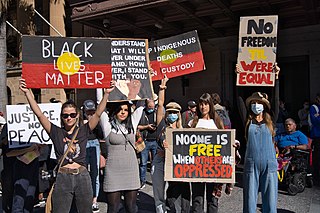
Shortly after protests began in the United States in late May 2020 seeking justice for George Floyd, an African-American who was murdered during an arrest by Minneapolis police, people in Australia protested to show solidarity with Americans and the Black Lives Matter movement, as well as to demonstrate against issues with police brutality and institutional racism, racism in Australia, and Aboriginal deaths in custody. Vigils and protests of thousands of participants took place nationwide.

Deona Marie Knajdek, a 31-year old American woman, was killed on June 13, 2021, when a man drove a car into a crowd of demonstrators who had gathered as a part of the Uptown Minneapolis unrest. That evening, demonstrators protesting the law enforcement killing of Winston Boogie Smith had blocked the intersection of West Lake Street and Girard Avenue. At approximately 11:39 p.m. CDT, a man in a late-model Jeep Cherokee drove into the crowd at a high speed, striking a parked vehicle that had been used to block off the intersection to traffic, which then collided with protesters, killing Knajdek and injuring three others.
References
- ↑ Graham, Chris (23 July 2017). "Elijah Doughty, 14, who was killed in Boulder near Kalgoorlie in August 2016. The Killing Fields: How We Failed Elijah Doughty, And Countless Others". New Matilda. Retrieved 23 August 2017.
- 1 2 3 Wahlquist, Calla (27 March 2018). "Man who killed Indigenous teenager Elijah Doughty given parole". The Guardian. Retrieved 12 May 2017.
- 1 2 3 4 5 6 Wahlquist, Calla (8 September 2016). "'Tell the world we want justice.' Elijah Doughty's death exposes Kalgoorlie's racial faultline". The Guardian. Retrieved 12 May 2017.
- 1 2 3 Wahlquist, Calla (15 November 2019). "The killing of Elijah Doughty: oil patch at crime scene fades but stain remains | Australia news". The Guardian. Archived from the original on 15 November 2019. Retrieved 15 November 2019.
- 1 2 3 4 Taylor, Paige (22 July 2017). "Elijah Doughty lost and Kalgoorlie simmers". The Australian. Retrieved 23 August 2017.
- ↑ "Progress steady since Elijah Doughty's death sparked Kalgoorlie riots". ABC News. 30 August 2017. Retrieved 17 February 2023.
- ↑ Allan-Petale, David (30 August 2016). "Indigenous journalist blames Kalgoorlie riots on Facebook crime pages". WAtoday . Retrieved 22 July 2017.
- ↑ Taylor, Paige (28 September 2016). "'Come back, unbreak our hearts,' says Elijah Doughty's mum". The Weekend Australian. Retrieved 12 May 2018.
- 1 2 3 4 Wahlquist, Calla (16 September 2016). "Kalgoorlie tensions flare as house of man accused of killing Elijah Doughty burns down". The Guardian. ISSN 0261-3077 . Retrieved 3 May 2023.
- ↑ McNeill, Heather (6 February 2017). "Man accused of killing Kalgoorlie teen Elijah Doughty seeks trial". WAtoday. Retrieved 22 July 2017.
- ↑ Farcic, Ele (6 February 2017). "Elijah Doughty: Trial over Kalgoorlie teen's death set for July". PerthNow. Retrieved 8 August 2017.
- ↑ Menagh, Joanna (17 July 2016). "Elijah Doughty death: Kalgoorlie man claims teenager's motorbike 'veered' in front of him". ABC Online. Retrieved 22 July 2017.
- 1 2 Thorpe, Nakari (25 July 2017). "Rallies across the country call for justice for Elijah Doughty". SBS Online. Retrieved 8 August 2017.
- 1 2 Cockburn, Paige (25 July 2017). "Elijah Doughty: Hundreds protest against sentence, cover Supreme Court in red ochre". ABC Online. Retrieved 26 July 2017.
- ↑ Clun, Rachel (26 July 2017). "'No justice, no peace': Protesters march for justice for Elijah Doughty". Brisbane Times. Retrieved 30 July 2017.
- ↑ "Rallies across the country call for justice for Elijah Doughty". ABC Online. 28 July 2017. Retrieved 8 August 2017.
- ↑ "Elijah Doughty: Melbourne brought to standstill as protesters march against sentence". ABC Online. 28 July 2017. Retrieved 30 July 2017.
- ↑ "Chris Lilley says blackface video not connected to Elijah Doughty protests". Australia: ABC. 30 July 2017. Retrieved 30 May 2019.
- ↑ Wolfe, Natalie (30 July 2017). "Chris Lilley under fire for re-posting video 'Squashed N***a' less than a week after Elijah Doughty case". News.com.au. Retrieved 31 July 2017.
- ↑ "Emotions run high on the one year death of Elijah". 29 August 2017.
- ↑ ReberHayman, Madeline (23 September 2017). "Elijah Doughty". NITV The Point.
- ↑ Georgatos, Gerry (23 July 2017). "'Elijah's death was murderous'". The Stringer.
- ↑ Clun, Rachel (27 March 2018). "'Elijah's killer released': Paroled after 19 months". The Australian.